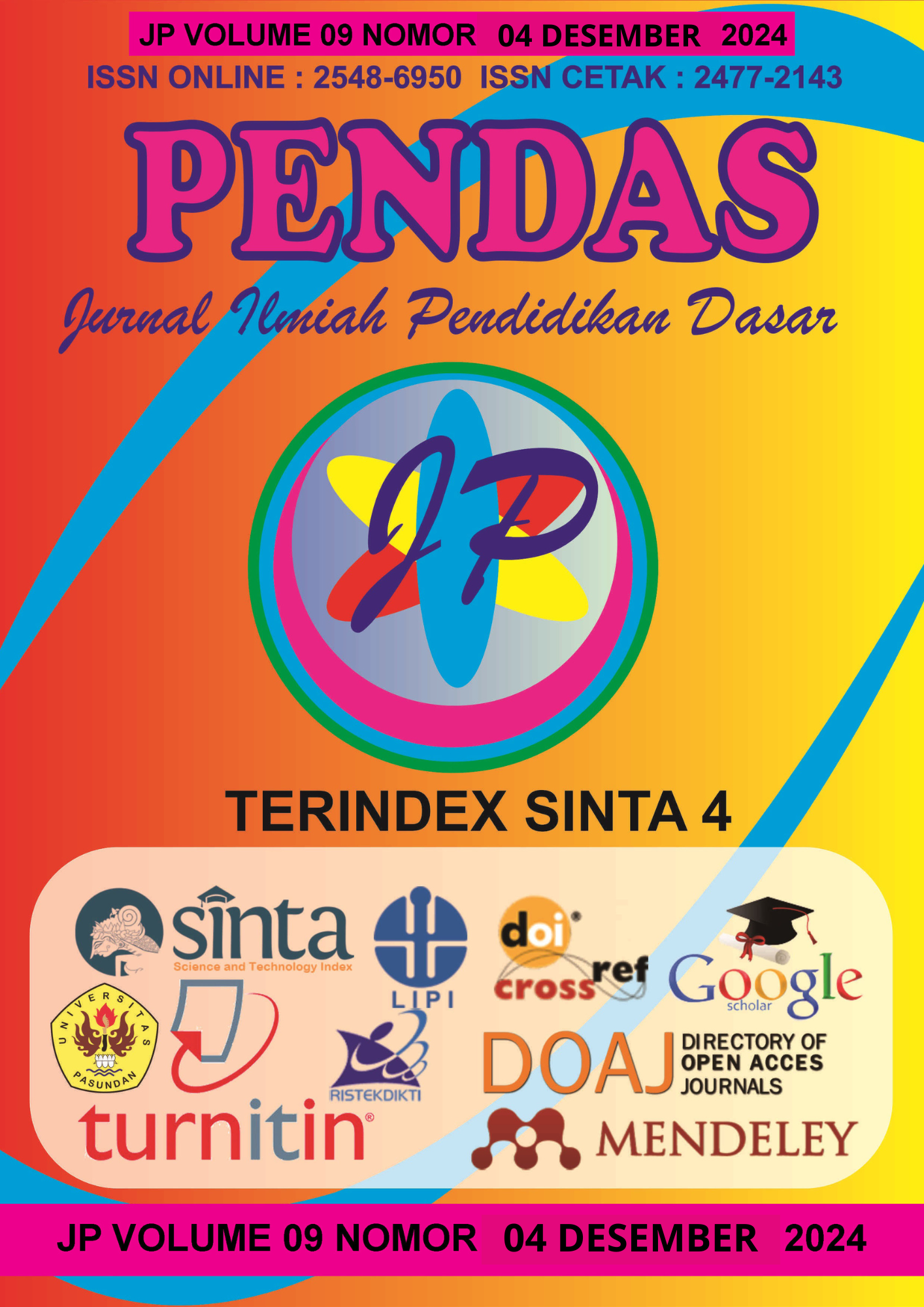KESANTUNAN BERBAHASA MAHASISWA DALAM BERINTERAKSI DI LINGKUNGAN UNIVERSITAS RIAU: KAJIAN SOSIOPRAGMATIK
DOI:
https://doi.org/10.23969/jp.v9i04.20557Keywords:
Politeness, Interaction, StudentsAbstract
This research aims to describe the various types of speech acts used by students and to analyze compliance with and violations of language politeness. Additionally, this study identifies the factors influencing students' politeness in interactions at Riau University. Data collection was conducted using the observation method. With a pragmatic approach, this research was analyzed using pragmatic matching methods (Sudaryanto) and contextual methods (Poedjosoedarmo). Research Findings: 1). Types of Speech Acts: The study found that students used various types of speech acts, including representative, directive, expressive, and commissive acts. 2). Level of Politeness Compliance: The measurement of students' politeness at Riau University is based on adherence to politeness principles such as tact over feelings, generosity, approbation, agreement, and sympathy. 3). Factors Influencing Politeness: There are five factors that influence language politeness: the place and atmosphere of the conversation, participants in the conversation, the purpose of the conversation, the topic of discussion, and the means of communication.
Downloads
References
Chaer, A. (2010). Pengantar Pragmatik. Jakarta: Rineka Cipta.
Holmes, Janet. Women, Men, and Politeness. Harlow, Essex: Longman Group UK Ltd, 1995.
Leech, G. N. (1983). Principles of Pragmatics. London: Longman.
Mardikantoro, Haribakti. 2012. Pilihan Bahasa Masyarakat Samin dalam Ranah Keluarga. Journal of Culture literature and Linguistik. Humaniora Vol.24, No. 3 Oktober 2012: 345- 357.
Novi.V. (2021). Pengertian Moderator: Tugas, Yang Harus Dimiliki dan Cara Menjadi Moderator. Diakses dari https://komunikasi.untag-sby.ac.id/web/beritadetail/lima-cara-menjadi-moderator-yang-baik.html
Rachman, A. (2015). Pragmatik dan Tindak Tutur. Yogyakarta: Pustaka Pelajar.
Rahardi, R.A. (2005). Pragmatik. Yogyakarta: Pustaka Pelajar.
Rahardi, Y. (2005). Kesantunan Berbahasa dalam Interaksi Sosial. Surakarta: UNS Press.
Rokhman, Fathur. 2003. Pemilihan Bahasa dalam Masyarakat Wibahasa: Kajian Sosiolinguistik di Banyumas. Disertasi. Yogyakarta. UGM.
Searle, J.R. (1979). Speech Acts: An Essay in the Philosophy of Language. Cambridge University Press.
Sudaryanto. (1995). Metode dan Aneka Teknik Analisis Bahasa. Yogyakarta: Duta Wacana University Press.
Sudaryanto. 2015. Metode dan Aneka Teknik Analisis Bahasa. Yogyakarta: University Press.
Universitas Udayana. (2021). Tata Tertib Seminar Proposal – 2020/2021. Diakses dari https://s1fapet.unud.ac.id/protected/storage/lampiran_page/3011372c963e69e0e49122e4226af699.pdf
Wintarsih, S., & Pranowo, H. (2020). Pentingnya Kesantunan Berbahasa bagi Mahasiswa. Jurnal Prodi Pendidikan Bahasa dan Sastra Indonesia FKIP Universitas Bale Bandung.
Yule, G. (1996). Pragmatics. Oxford University Press.
Downloads
Published
Issue
Section
License
Copyright (c) 2025 Pendas : Jurnal Ilmiah Pendidikan Dasar

This work is licensed under a Creative Commons Attribution 4.0 International License.



















